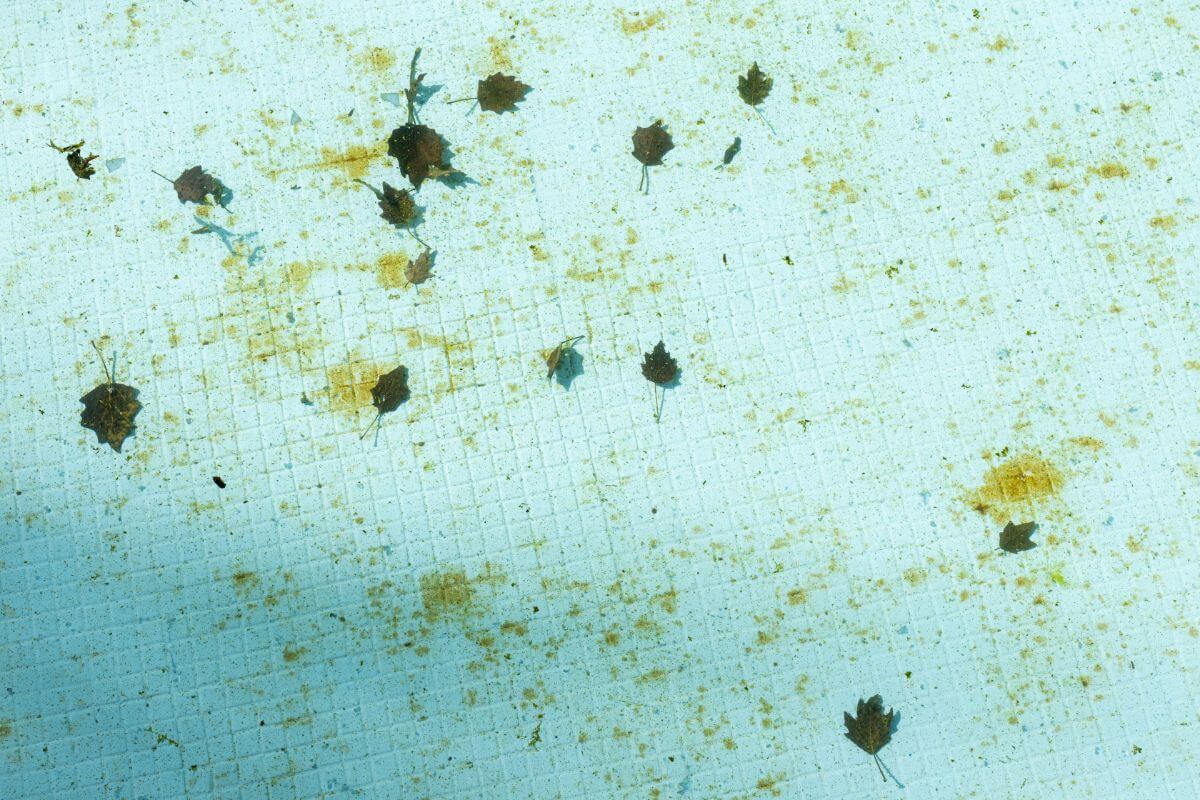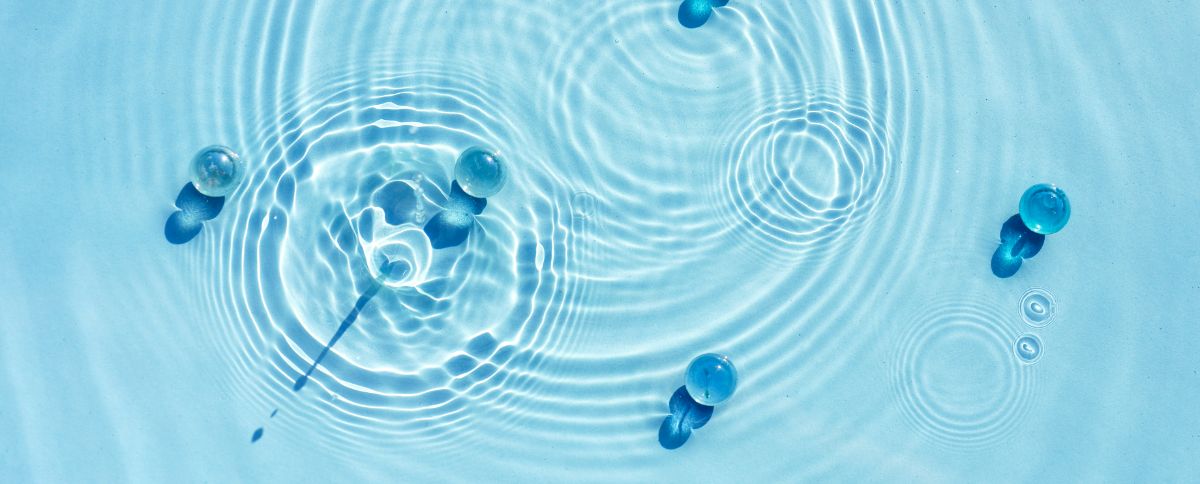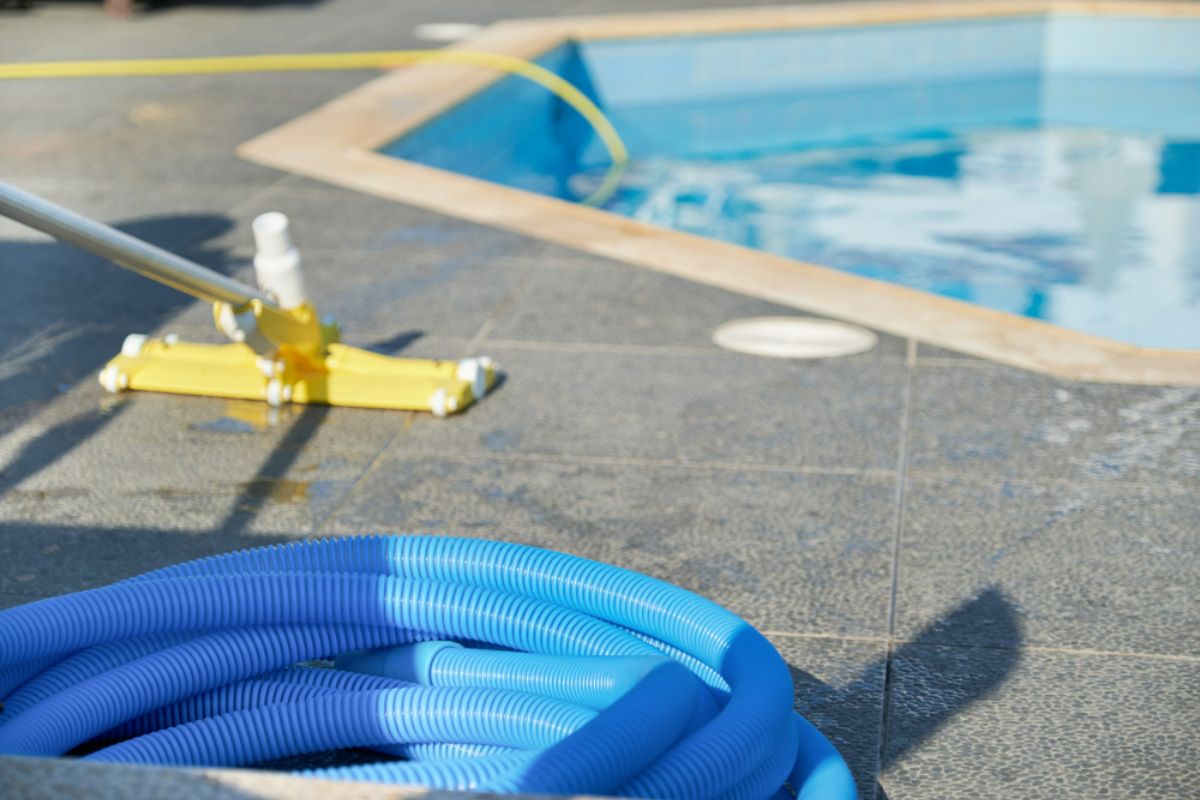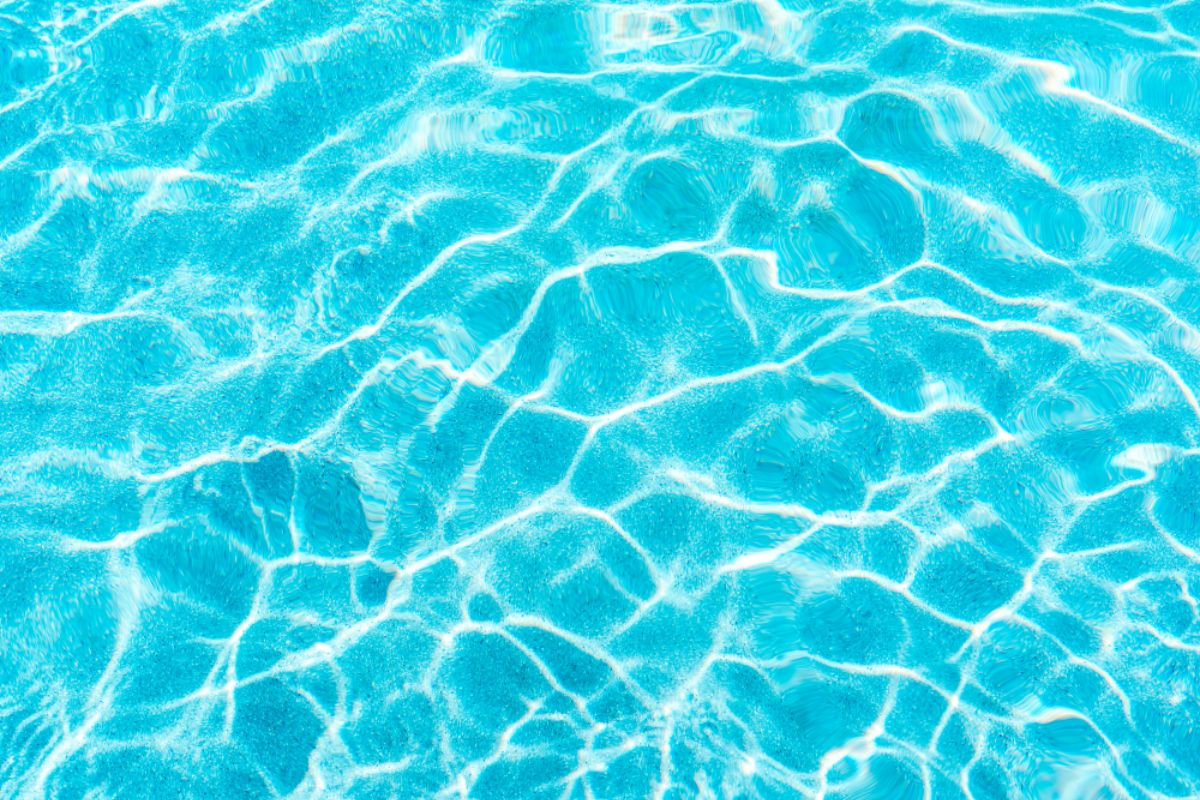What are some things you should know about swimming pool algae?
- It is a plant-like organism.
- There are three common types of pool algae.
- It can cause problems like foul odor and some health risks.
- You can prevent this with regular pool maintenance.
- There are many ways to treat pool algae.
Swimming pools are a great way to relax and cool off during hot summer days. However, one issue that pool owners often encounter is the growth of algae. Algae is a common problem in swimming pools, and if left untreated, it can lead to a range of issues such as cloudy water, a foul smell, and even health risks. In this blog post, we will discuss the things you should know about swimming pool algae and how to prevent and treat it.
It is a Plant-Like Organism
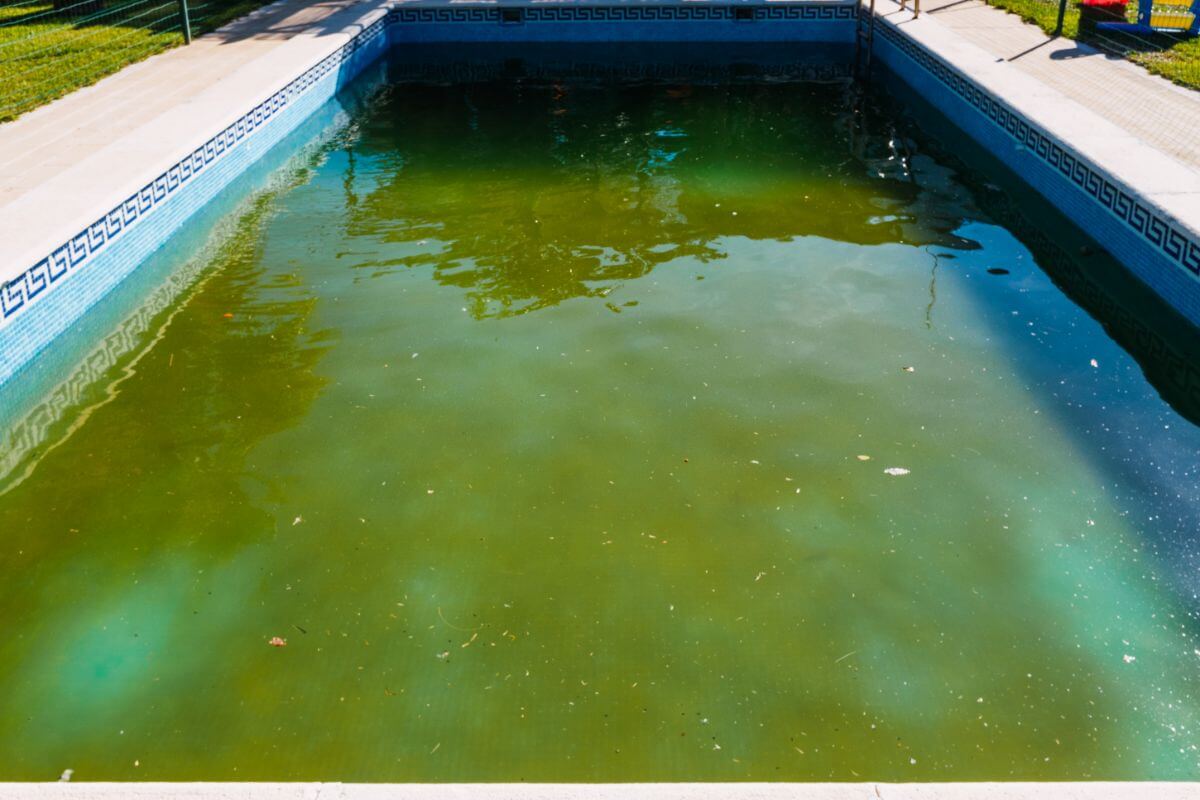
Algae is a type of plant-like organism that can grow in swimming pools. It thrives in warm, moist environments and can quickly take over a pool if not properly managed. Algae can come in various forms, including green, black, and mustard-colored.
There are many reasons why they grow in pools. It depends on a variety of factors including sunlight, temperature, circulation, water chemistry, and contamination.
Reasons Algae Grows in Pools
- Sunlight: Just like other plants, algae require sunlight to grow and reproduce. If exposed to direct sunlight several hours a day, the pool becomes a favorable environment for algae.
- Temperature: Algae grows more in pools with warm temperatures. If consistently warm, it promotes algae growth.
- Circulation: When pools have poor water flow, it creates stagnant areas where algae can grow.
- Water chemistry: If the pH, alkalinity, or chlorine levels are not properly balanced, it can create an environment where algae can thrive.
- Contamination: Algae spores can enter the pool from outside sources, such as wind, rain, or people entering the pool.
There are Three Common Types of Pool Algae.
Several different types of algae can grow in swimming pools. Here are some of the most common types:
Green Algae
This is the most common type of algae and is usually easy to treat with shock treatment and proper cleaning.
Mustard Algae
This type of algae is more difficult to treat than green algae and may require several rounds of shock treatment and cleaning.
Black Algae
Black algae are the most difficult type of algae to treat and may require specialized treatment to fully eradicate it.
It Can Cause Problems like Foul Odor and Some Health Risks
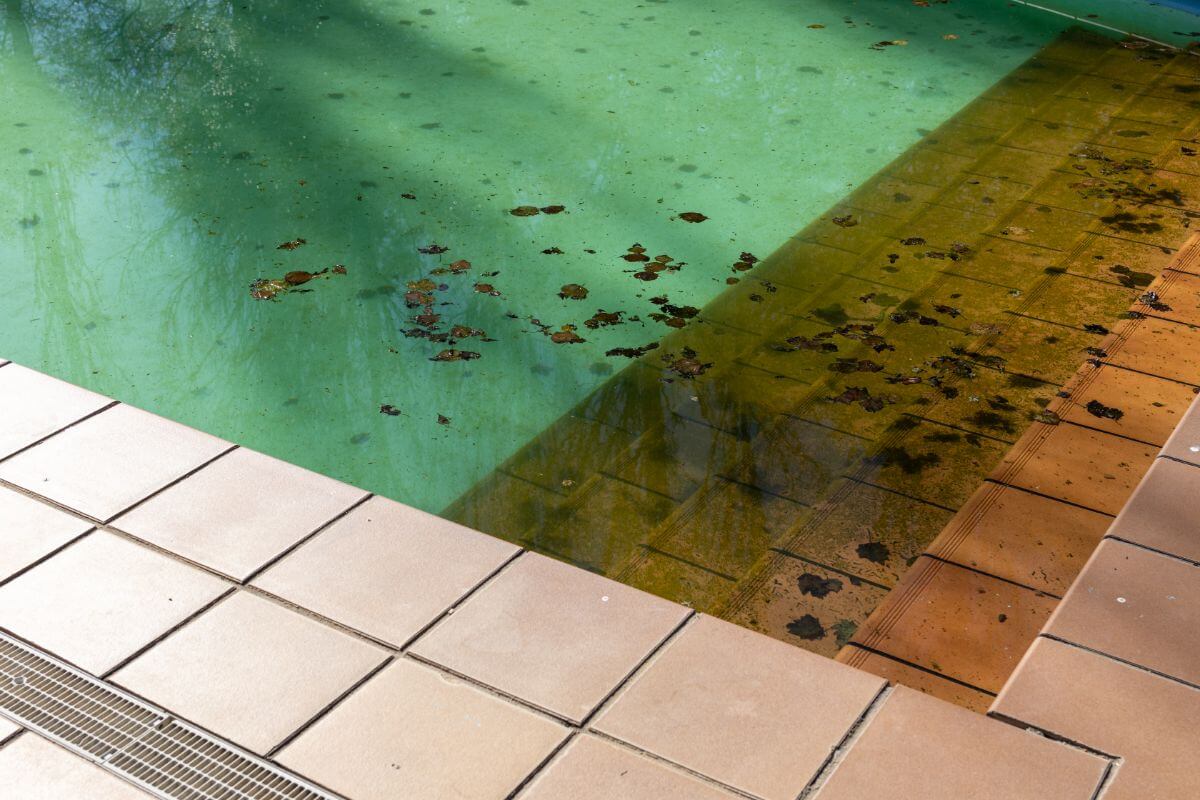
Algae can cause risks in swimming pools due to its potential to create hazardous conditions. When algae grows in a pool, it can make surfaces slippery, increasing the risk of slips, falls, and injuries. Here are some other problems it can cause:
Poor water quality
Algae can make the water in your pool cloudy and murky, which can make it difficult to see and swim in.
Foul odor
Algae can give off an unpleasant smell that can make your pool area less inviting.
Health Risks
Algae can harbor bacteria and other harmful organisms that can cause skin irritation, respiratory problems, and other health issues.
You Can Prevent this with Regular Pool Maintenance.
Preventing algae growth is the best way to avoid problems in your swimming pool. Here are some tips to help you keep algae at bay:
Proper water circulation
Make sure your pool’s pump and filter are running efficiently to ensure proper water circulation. Stagnant water is a breeding ground for algae.
Regular cleaning
Regularly brushing the walls and floors of your pool can help to prevent algae growth. Make sure that your home has all the right swimming pool cleaning accessories for this.
Removing debris like leaves and twigs can also help to prevent the buildup of organic matter that algae feed on.
Proper pH balance
Keeping your pool’s pH levels in the proper range (between 7.2 and 7.8) can help to prevent algae growth. At Oktakem Trading, you can purchase HCT Pool & Spa 5 in 1 Test Strips to check the pool chemistry. Test your pool’s pH levels regularly and add chemicals to maintain the proper balance.
Proper chlorine levels
Chlorine is an effective tool for preventing algae growth. Maintain a proper chlorine level in your pool (between 1 and 3 ppm) to keep algae at bay.
There are Many Ways to Treat Pool Algae
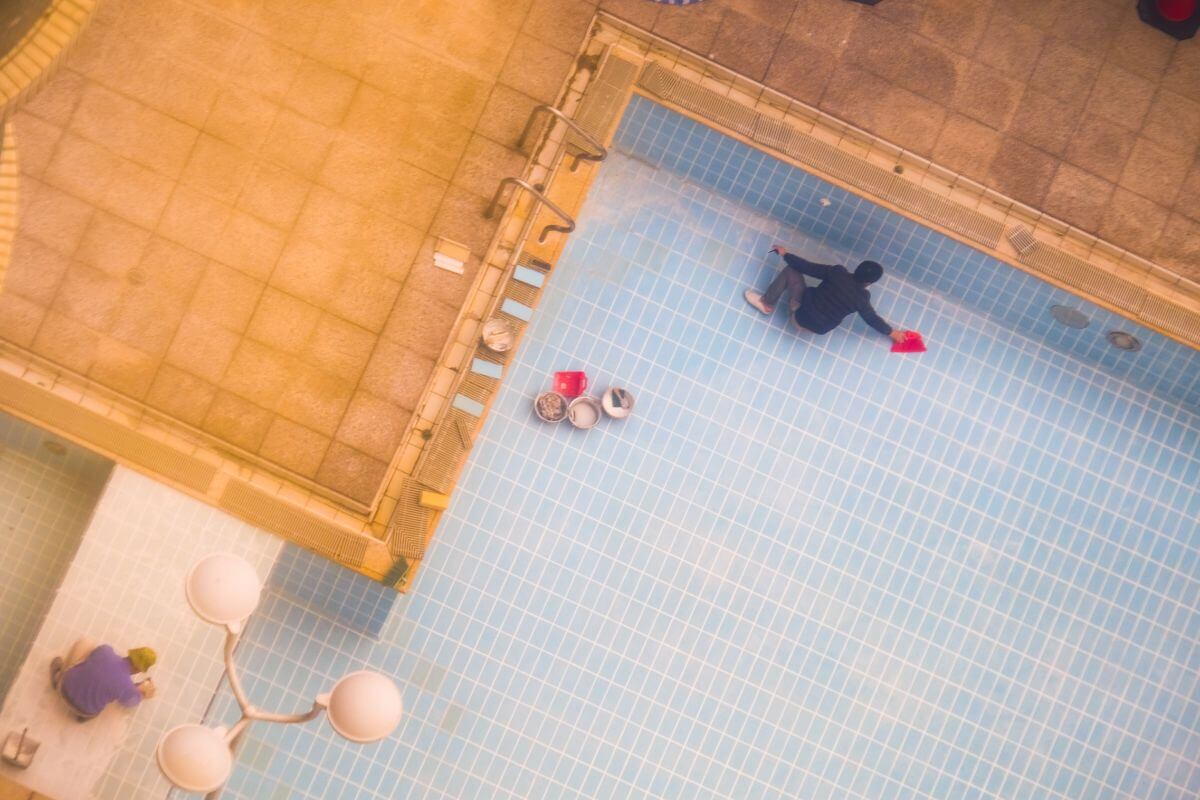
If algae take hold in your pool, it’s important to treat it promptly to prevent further growth and potential health risks. Here are some steps to take to treat algae growth:
Shock treatment
A shock treatment involves adding a large dose of chlorine to your pool to kill the algae. Follow the manufacturer’s instructions for the proper amount of shock treatment to use based on the size of your pool.
You can also choose to add algaecide like Oktakem’s HCT Pool Algaecide. This can be added weekly or after heavy or prolonged rainfall.
Brushing
Brush the walls and floors of your pool to remove as many algae as possible. This will help to expose the algae to the shock treatment and make it more effective.
Filter cleaning
After the shock treatment, clean your pool’s filter to remove any dead algae that may be trapped in it. This will help to prevent further algae growth.
Repeat
Depending on the severity of the algae growth, you may need to repeat the shock treatment and cleaning process to fully eradicate the algae.
Key Takeaway
This blog answered the question: “What is swimming pool algae?” Now that you know the answer, you can do your best to prevent its growth in your swimming pool. This makes swimming both fun and safe all year long.
If you’re looking for affordable and high-quality swimming pool chemicals to fight algae, you’ve come to the right place. Here at Oktakem, we stock a list of chemicals and materials that can be used for cleaning.
Contact Oktakem today if you have other inquiries. You may also visit our Shopee page or Lazada page for more information about our product details.







